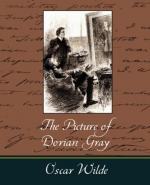“I hope not,” said Dorian, with a touch of pathos in his voice. “But I am tired to-night, Harry. I won’t go to the club. It is nearly eleven, and I want to go to bed early.”
“Do stay. You have never played so well as to-night. There was something in your touch that was wonderful. It had more expression than I had ever heard from it before.”
“It is because I am going to be good,” he answered, smiling. “I am a little changed already.”
“Don’t change, Dorian; at any rate, don’t change to me. We must always be friends.”
“Yet you poisoned me with a book once. I should not forgive that. Harry, promise me that you will never lend that book to any one. It does harm.”
“My dear boy, you are really beginning to moralize. You will soon be going about warning people against all the sins of which you have grown tired. You are much too delightful to do that. Besides, it is no use. You and I are what we are, and will be what we will be. Come round tomorrow. I am going to ride at eleven, and we might go together. The Park is quite lovely now. I don’t think there have been such lilacs since the year I met you.”
“Very well. I will be here at eleven,” said Dorian. “Good-night, Harry.” As he reached the door he hesitated for a moment, as if he had something more to say. Then he sighed and went out.
It was a lovely night, so warm that he threw his coat over his arm, and did not even put his silk scarf round his throat. As he strolled [98] home, smoking his cigarette, two young men in evening dress passed him. He heard one of them whisper to the other, “That is Dorian Gray.” He remembered how pleased he used to be when he was pointed out, or stared at, or talked about. He was tired of hearing his own name now. Half the charm of the little village where he had been so often lately was that no one knew who he was. He had told the girl whom he had made love him that he was poor, and she had believed him. He had told her once that he was wicked, and she had laughed at him, and told him that wicked people were always very old and very ugly. What a laugh she had!—just like a thrush singing. And how pretty she had been in her cotton dresses and her large hats! She knew nothing, but she had everything that he had lost.
When he reached home, he found his servant waiting up for him. He sent him to bed, and threw himself down on the sofa in the library, and began to think over some of the things that Lord Henry had said to him.
Was it really true that one could never change? He felt a wild longing for the unstained purity of his boyhood,—his rose-white boyhood, as Lord Henry had once called it. He knew that he had tarnished himself, filled his mind with corruption, and given horror to his fancy; that he had been an evil influence to others, and had experienced a terrible joy in being so; and that of the lives that had crossed his own it had been the fairest and the most full of promise that he had brought to shame. But was it all irretrievable? Was there no hope for him?




